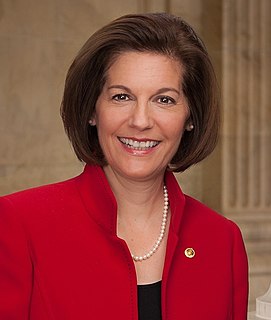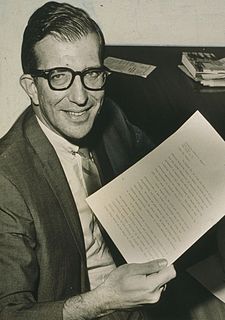A Quote by Al Gore
The role of campaign contributions in our political system and the role of lobbyists have now reached levels that are quite unhealthy for the operations of our democracy. But the antidote, as in past eras of lobbyist excess, is for more involvement by citizens to build pressure on members of the House and Senate to serve the public interest.
Related Quotes
Inequality also distorts our democracy. It gives an outsized voice to the few who can afford high-priced lobbyists and unlimited campaign contributions, and runs the risk of selling out our democracy to the highest bidder. And it leaves everyone else rightly suspicious that the system in Washington is rigged against them - that our elected representatives aren't looking out for the interests of most Americans.
Lobbyists are in many cases expert technicians and capable of explaining complex and difficult subjects in a clear, understandable fashion. They engage in personal discussions with Members of Congress in which they can explain in detail the reasons for positions they advocate. Because our congressional representation is based on geographical boundaries, the lobbyists who speak for the various economic, commercial, and other functional interests of this country serve a very useful purpose and have assumed an important role in the legislative process.
The problems that exist on Wall Street today go to the center of a debate in this country about wealth and democracy. We cannot keep our democracy if those who are in charge of handling the engines of our economy are not honest with their shareholders. That's why there is a role for government regulation here. That role for government is breaking up the monopolies, insisting on public disclosure, insisting on public audits, insisting on restitution whenever someone has been cheated.
For the United States, our political system is clearly distorted. We have gerrymandering so that there is a situation where a million more voters who vote for Democrats, yet the House is controlled by the Republicans. So clearly, the way our Congress operates is important. The other big issue is the influence of money in politics. It's not only campaign contributions. People like Trump - either you become very dependent on your benefactors or you are very rich.
Let’s begin with capitalism, a word that has gone largely out of fashion. The approved reference now is to the market system. This shift minimizes - indeed, deletes - the role of wealth in the economic and social system. And it sheds the adverse connotation going back to Marx. Instead of the owners of capital or their attendants in control, we have the admirably impersonal role of market forces. It would be hard to think of a change in terminology more in the interest of those to whom money accords power. They have now a functional anonymity.
It's time to admit that public education operates like a planned economy, a bureaucratic system in which everybody's role is spelled out in advance and there are few incentives for innovation and productivity. It's no surprise that our school system doesn't improve: It more resembles the communist economy than our own market economy.
In the end, I'm convinced we will all benefit if suspicion is replaced by discussion, innuendo by dialogue; if the emphasis in our debate turns from a search for talismanic criteria and neat but simplistic answers to an honest - more intelligent - attempt at describing the role religion has in our public affairs, and the limits placed on that role.
I have no patience for injustice, no tolerance for government incompetence of which there is so much. No sympathy for leaders who fail their citizens. When innocent people suffer, because our political system lacks the will, or the courage, or the basic decency to enforce our laws – or still worse, has sold out to some corporate lobbyist for cash – I am not able to look the other way.































